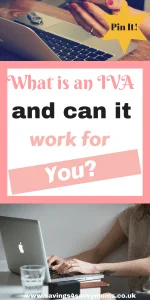If you’re in debt, then you may have heard the word IVA being bounded about, but what is it and is it right for you?
Finding the correct IVA help & advice isn’t always easy and how do you know that you’ve received the best advice for your situation?
Here we explain what a IVA really is and try and help clear up the jargon so you can make a informed decision on what’s right for you.
What is a IVA?
An IVA or an individual voluntary arrangement if you prefer using it’s long name is a official agreement between yourself and your creditors to help you repay your debts at an amount you can afford.
They are legal binding documents that help you deal with your debt but can only be done with the help of an insolvency practitioner.
To start, you would normally put together an offer to your creditors on what you can afford to pay. This can be done either as a lump sum or in a long term payment plan.
How can I apply for an IVA?
Before you decide to go down that road it’s best to get IVA advice to make sure that it’s the best option for you.
An IVA is a form of insolvency that can affect your financial situation further down the line. Please don’t enter into it lightly and remember to get impartial advice before you sign on the dotted line.
Can I get a IVA?
Not all debts are included and not everyone qualifies. An IVA is normally best suited for anyone with a regular source of income or who has a lump sum they can pay toward the debt.
What’s called “common debt” is normally included like credit cards, store cards, payday loans and overdrafts. Other debts like student loans, mortgages and child support are not included and will still have to be paid.
How will having a IVA affect me?
Like any debt management plan there are some penalties that come with it. These are but are not limited to:
Your credit rating: This will be affected for six years from the start of the IVA.
Your budget: It’s important you can maintain the IVA payments. If you miss a payment then it gets added on to make up the arrears.
Your job: An IVA could affect your job. Check your contract or speak to the HR department to find out if it will harm your role.
Hire purchases: This includes any you currently have or want in the future.
Future money: Any additional income must be declared and it is likely that you will have to start paying extra toward your IVA.
On record: Your IVA is recorded on the Insolvency Register which can be viewed by the general public and contains all details on your IVA.
Future lending: You won’t be able to have any new debt above £500 during your iVA.
Can an IVA affect my home?
You shouldn’t have to sell your home but you may be forced to release any equity in your home near the end of the IVA to pay it off.
This will all be assessed before hand but this does make it VERY important to get good impartial IVA advice before you go ahead.
Your Insolvency Practitioner will normally chat to you about this and ask if you want it added to your IVA application.
What happens if I miss a payment?
You must talk to your Insolvency Practitioner as quick as you can. Your IVA may allow small payment holidays if you have an emergency or you may be able to alter your monthly payments if your Insolvency Practitioner agrees and the changes are small.
If you need to change your agreement a lot then your Insolvency Practitioner will have to speak to your creditors and ask them to agree.
Any missed payments WILL be added to the end of your term.
Get IVA advice
It’s always important to get free confidential advice before you decide on a IVA. If you already have one that please talk to your Insolvency Practitioner first and see if you can come up with a plan together.
Laura x
If you enjoyed this post and would like some more family friendly money managing ideas, then head over to the managing money section here on Savings 4 Savvy Mums where you’ll find over 30 blog posts dedicated to helping you manage your family’s finance. There’s enough tips to help you save over £300 a month! You could also pop over and follow my managing money Pinterest boards for lots more ideas on how to keep more of your money in your pocket: Managing Money Printables, Managing Money for Families and Family Finance.
Love this post? Then why not save it to Pinterest so you can easily find it later.

***This is a collaborated post

